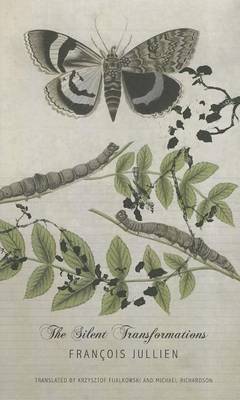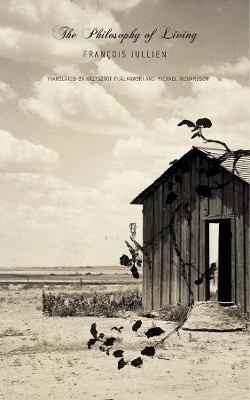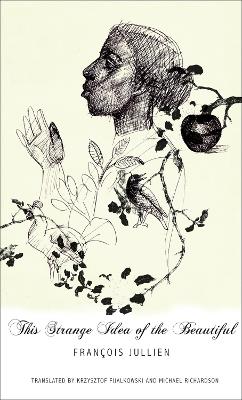The French List - (Seagull titles CHUP)
3 total works
To grow up is to grow old. With time, great love can turn into indifference. And even the most earnest revolution can imperceptibly become its own system of privilege and corruption - just as global warming has slowly modified the climate by degrees. These are examples of the kind of quiet, unseen changes that Francois Jullien examines in "The Silent Transformations", in which he compares Western and Eastern - specifically Chinese - ways of thinking about time and processes of change. Jullien argues that our failure to notice the effects of cumulative changes over time is due to Western thought's foundations in classical Greek philosophies of being, which encourage thinking in terms of determined forms and neglect the indeterminable nature of the transition taking place. In contrast, Chinese thought, having a greater sense of the fluidity of life, provides a more flexible way of understanding everyday transformations and offers insightful perspectives from which to consider our relation to history and nature.
In particular, a Chinese approach, argues Jullien, allows us to discover that there may be occasions when it is more efficacious to yield to situations than to confront them head-on. In "The Silent Transformations", Jullien resituates Western philosophy by examining it in the light of traditions of thought that have developed from fundamentally different concepts and contexts. Jullien here opens a space for a new way of thinking, and this refreshing book will stimulate the interest of scholars in both Western and Eastern philosophy.
In particular, a Chinese approach, argues Jullien, allows us to discover that there may be occasions when it is more efficacious to yield to situations than to confront them head-on. In "The Silent Transformations", Jullien resituates Western philosophy by examining it in the light of traditions of thought that have developed from fundamentally different concepts and contexts. Jullien here opens a space for a new way of thinking, and this refreshing book will stimulate the interest of scholars in both Western and Eastern philosophy.
Living holds us between two places. It expresses what is most elementary-to be alive-and the absoluteness of our aspiration-finally living! But could we desire anything other than to live? In The Philosophy of Living, FranA ois Jullien meditates on Far Eastern thought and philosophy to analyze concepts that can be folded into a complete philosophy of living, including the idea of the moment, the ambiguity of the in-between, and what he calls the "transparency of morning." Translated by Krzysztof Fijalkowski and Michael Richardson, this volume asks poignant questions about what it means to be alive and inhabit the present. Jullien develops a strategy of living that goes beyond morality and dwells in the space between health and spirituality.
In "This Strange Idea of the Beautiful", Francois Jullien brings together ideas of beauty from both Eastern and Western philosophy in order to challenge the assumptions underlying our commonly agreed upon definition of what is beautiful and offer a new way of beholding art. Jullien argues that the Western concept of beauty was established by Greek philosophy and consequently became embedded within the very structure of European languages. And due to its relationship to language, this concept has determined ways of thinking about beauty that often go unnoticed or unchecked in discussions of Western aesthetics. Moreover, through globalization, Western ideals of beauty have even spread to cultures whose ancient traditions are based upon radically different aesthetic foundations, yet these cultures have adopted such views without question and without recognizing the cultural assumptions they contain. Looking specifically at how Chinese texts have been translated into Western languages, Jullien reveals how the traditional Chinese refusal to isolate or abstract beauty is obscured in translation in order to make the works more understandable to Western readers.
Creating an engaging dialogue between Chinese and Western ideas, Jullien reassesses the essence of beauty.
Creating an engaging dialogue between Chinese and Western ideas, Jullien reassesses the essence of beauty.


